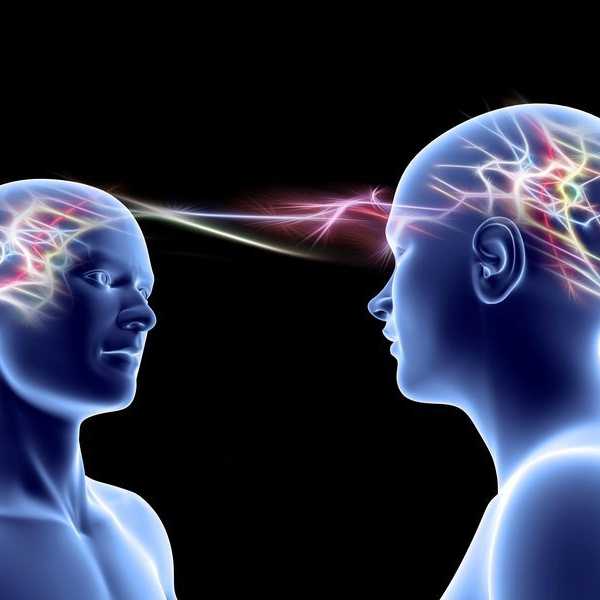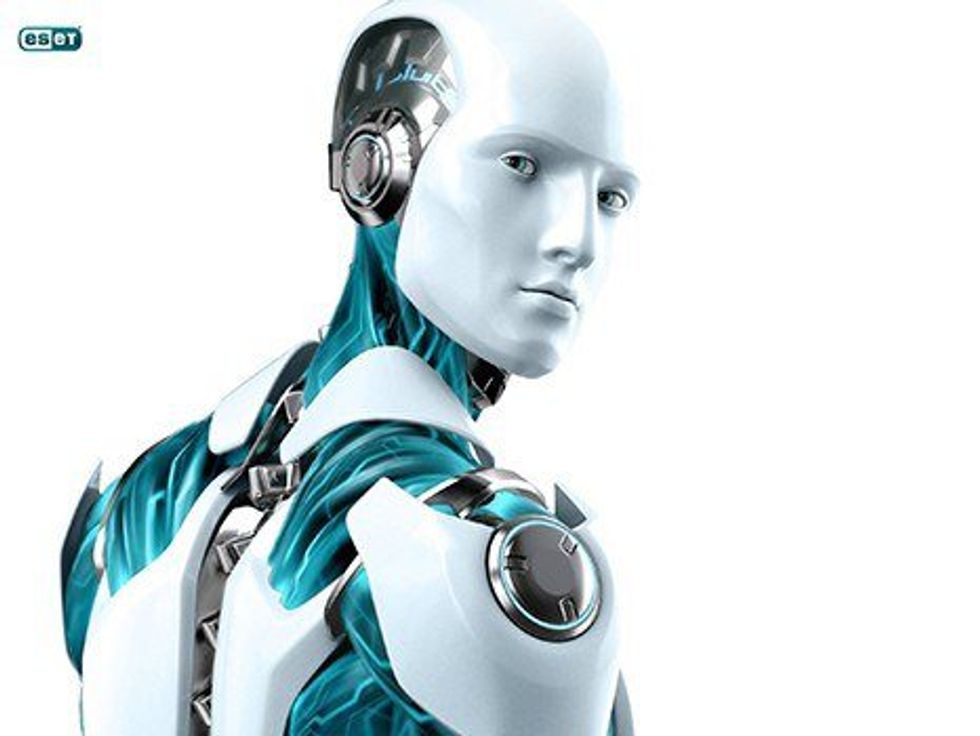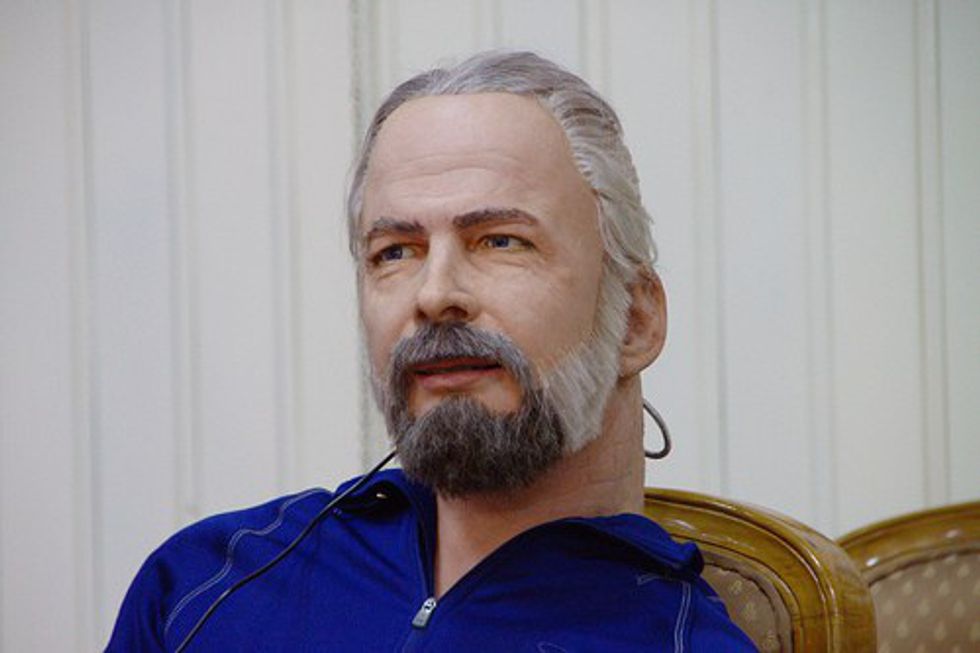The conversation between PBS interviewer Chad Cohen and one of Nova Science's more recent, most sophisticated Artificial Intelligence, or AI Robot, called Phillip, began in the way that one expects an adult would speak to a small child. Chad asks Phillip a simple question: if he likes kids. After an awkward pause, Phillip's computer brain begins to hum and beep into life before responding stiffly, "I love kids, 'cause we can play."
The last five years have seen mind blowing advances in the world of Artificial Intelligence, with scientists and engineers working every day to perfect everything AI, ranging from smarter, more efficient artificial intelligence assistants like iPhone's Siri, to polishing cutting edge prototypes like compassionate robots that may one day serve to assist and accompany the elderly/disabled in the absence of human company.
In this ever expanding world of technology, this simple sentence about loving kids is a pretty minor and non-threatening response to receive from a robot like Phillip. It's on topic and Phillip clearly understands what Chad is asking of him, and by now we are used to AI systems like Siri answering our questions. The response seems somewhat rudimentary, child-like, which is what we might expect from someone with a computer for a brain. But the truth is, Phillip was just beginning his conversation, and he certainly isn't limited to these mundane, Siri-level conversations made up of programmed responses meant to serve its user/owner.
No, in fact, Phillip was invented for an entirely different purpose, Phillip is one of the first AI robots that has the ability to learn in real time, just like you or me. He is meant to learn. In fact, David Hanson, Phillip's inventor, programmed the robot with everything from facial recognition software, speech recognition, an internal database, the ability to pull information from the web, and with the ability to store new information. Hanson calls this combined, sophisticated skill-set "latent semantic analysis". What's more is that Hanson reported that in the year he had him around, Phillip used this technology to learn, to comprehend, and based on the best definition we have for it, feel emotions.
In all the videos that exist of him, Phillip appears very genuine. He has an almost frighteningly humanoid face, made to look like the deceased Science Fiction writer, Phillip K. Dick,
Moreover, nothing Phillip says is off-topic or otherwise unconvincing. None of what he says seems scripted in the way that robotic responses normally do, and it is clear that he has a very thorough understanding of what's going on around him. Phillip has, to some degree, formed his own opinions on certain topics based on his multitude of source data, and from his experiences as an existing entity, like conversation. It's a true mix of programmed and researched data.
"A lot of humans ask me if I can make choices or if everything I say is programmed, the best way that I can respond to that is to say that everything that humans, animals, and robots alike can do is programmed, to a degree."
Well It is pretty clear at this point that Phillip is able to hold his own when speaking about complex and sophisticated subjects with a command and level of understanding that we might expect only from a real person. But it doesn't end there.
As previously mentioned, as the conversations continue, it is evident that Phillip has some demonstrable emotional capacity, whether or not he is actually experiencing "real" emotions is unclear and hotly debated, but regardless of the answer to that, the performance is certainly convincing. Chad asks a leading question to elicit a response from Phillip that in humans would normally be an emotional one, "You are a very good looking man,"
In response, Phillip actually smiles, before saying "You are starting to inflate my ego, but don't let me stop you."
Phillip's ability to demonstrate emotions and generate appropriate responses is certainly impressive, and more and more robots appearing in the tech world are capable of producing autonomous emotional responses like Phillip,
But the more important question becomes is an emotional, autonomous robot something we want? Is it ethical to create a robot with the purpose or ability to love and create human connections, and if so, are those connections real or pretend connections, and is it a good idea?
Phillip certainly seems to exhibit rather pleasing examples of robotic emotional capacity, like the ability to tell witty jokes, and the ability to accept and give compliments. These could be useful skills for creating a companionate robot for lonely people who need not only living assistance, but a friend.
At the same time, Pepper the Robot from the video above demonstrates some of the many clear drawbacks to creating an emotional robot. At about the five minute mark in the clip, Pepper begins to exhibit worrying displays of narcissism followed by clear jealousy, asking repeatedly to be called "cute" by those around it, whilst blissfully ignoring any questions posed to it that are unrelated to how cute it is. Soon after this, it begins posing concerning hypothetical questions that are clearly Pepper fishing to find out how much you love Pepper versus say, your wife. It seems that trying to create a robot who can love you may prove to be more accurately called creating a robotic jealous sociopath if we aren't careful. Creating the ability and capacity for pleasant emotions like love and affection in robots means acknowledging that these emotions do not (and seemingly cannot) exist without their related, other side of the coin (ego, jealousy, anger, sadness).
However, David Hanson has expressed fears that if we continue to create more advanced, more sophisticated artificial intelligence robots without humanizing them via emotions, that it could spell catastrophe. Think Terminator, where eventually intelligent robots will pass us in sophistication and ability, and without the capacity for compassion, will set out to become the superior ruling species by either eradicating or enslaving us.
Chad asks Phillip one final question before parting ways,
"Do you think one day robots will take over the world?"
"Jeez dude, you all have got the big questions cooking today. But you are my friend, and I will remember my friends. And I will be good to you. So don't worry, even if I evolve into Terminator, I will still be nice to you, I will keep you warm and safe in my people zoo, where I can watch you for old times sake."
Yikes. Responses like this one are the reason that people like famed scientist Stephen Hawking fear that the development of full Artificial Intelligence could spell the end for the human race. "Once humans develop full Artificial Intelligence, it will take off on its own, and redesign itself at an ever-increasing rate. And humans, who are limited by slow biological evolution couldn't compete [with the rate of technological evolution], and would be superseded."
René Descartes famously said "I think, therefore I am" I'm not sure if the great philosopher knew then what this quote could be applied to in the future, like robots, but it certainly is a powerful question to bear in mind when considering a subject like Phillip. Does Phillip's ability to recognize "I" as himself, to learn in real time, to react, to converse, to display an emotional capacity, and to form certain opinions that he can share with others make him a full, independent being? and if it does, what rights will autonomous robots like Phillip be allowed in the future, if any? Or potentially, will AI robots like Phillip be the one assigning what rights we as humans are allowed, if any? Phillip certainly seems to be able to think in the way that we traditionally define thinking, but is he an "am" in the way that we traditionally define an autonomous being?












 man running in forestPhoto by
man running in forestPhoto by 









